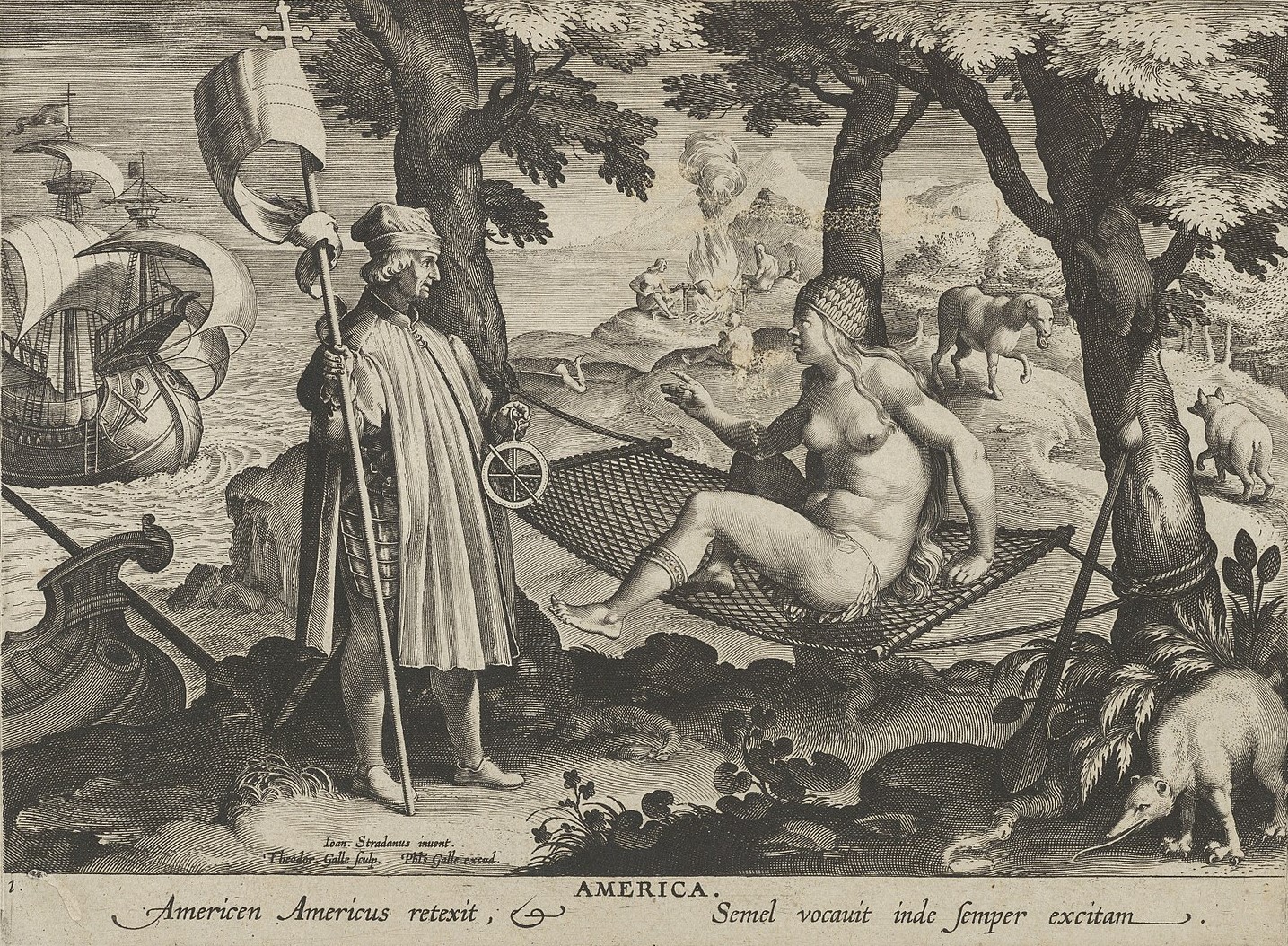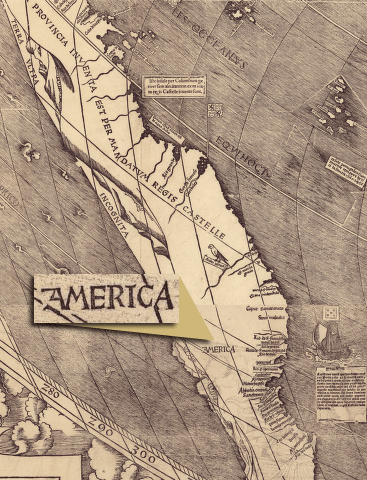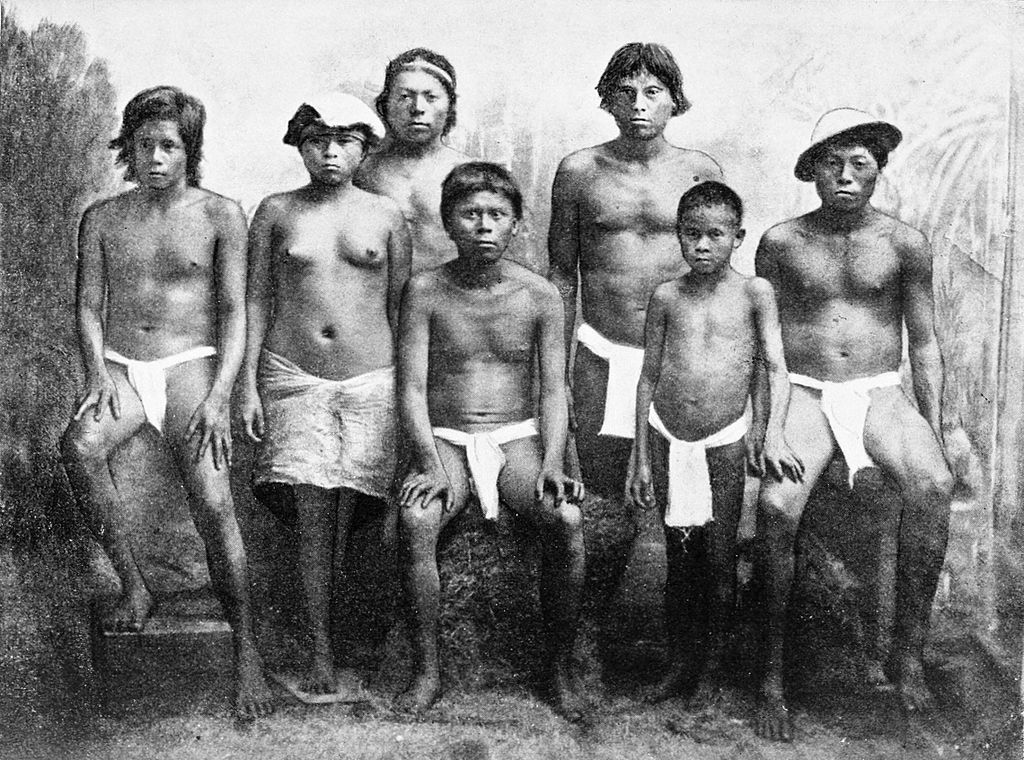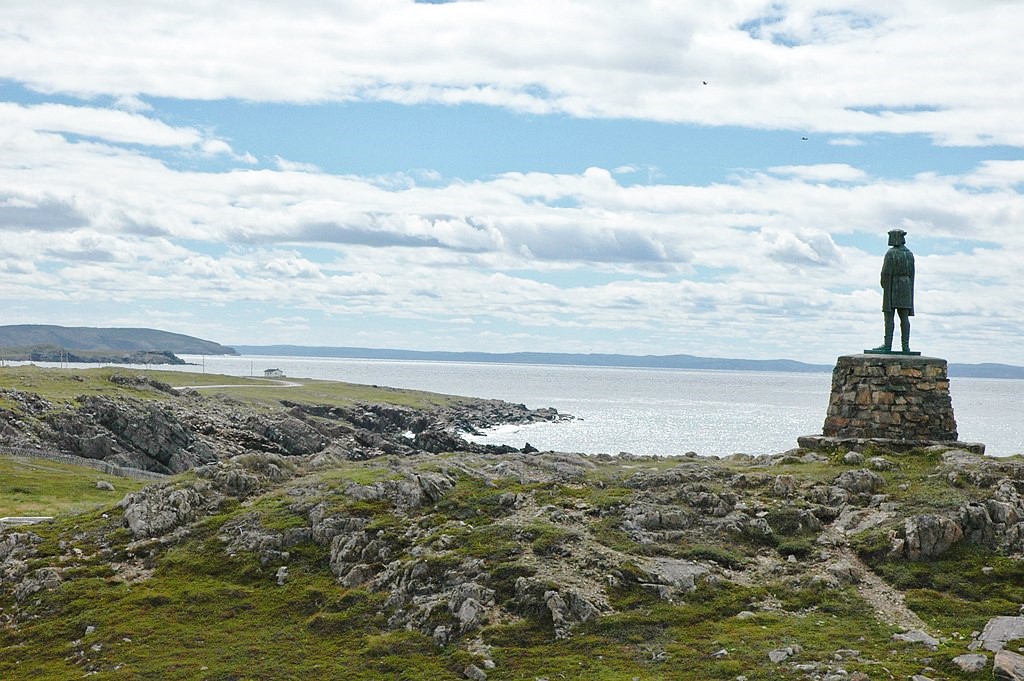Authors:
Historic Era: Era 2: Colonization and Settlement (1585-1763)
Historic Theme:
Subject:
Fall 2023 | Volume 68, Issue 7
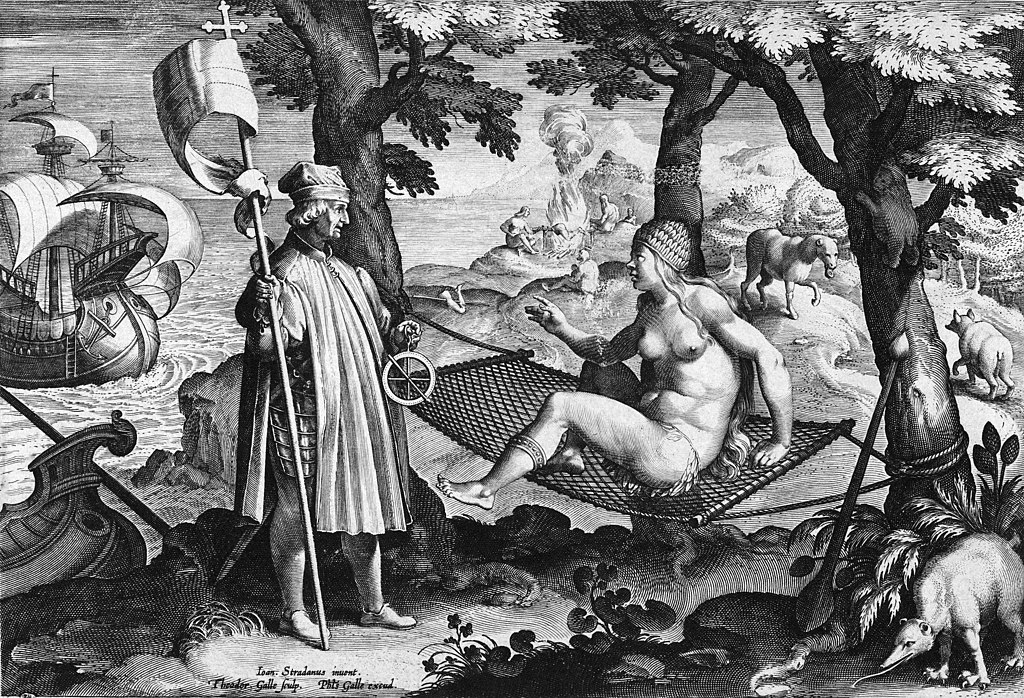
Authors: Jonathan Cohen
Historic Era: Era 2: Colonization and Settlement (1585-1763)
Historic Theme:
Subject:
Fall 2023 | Volume 68, Issue 7

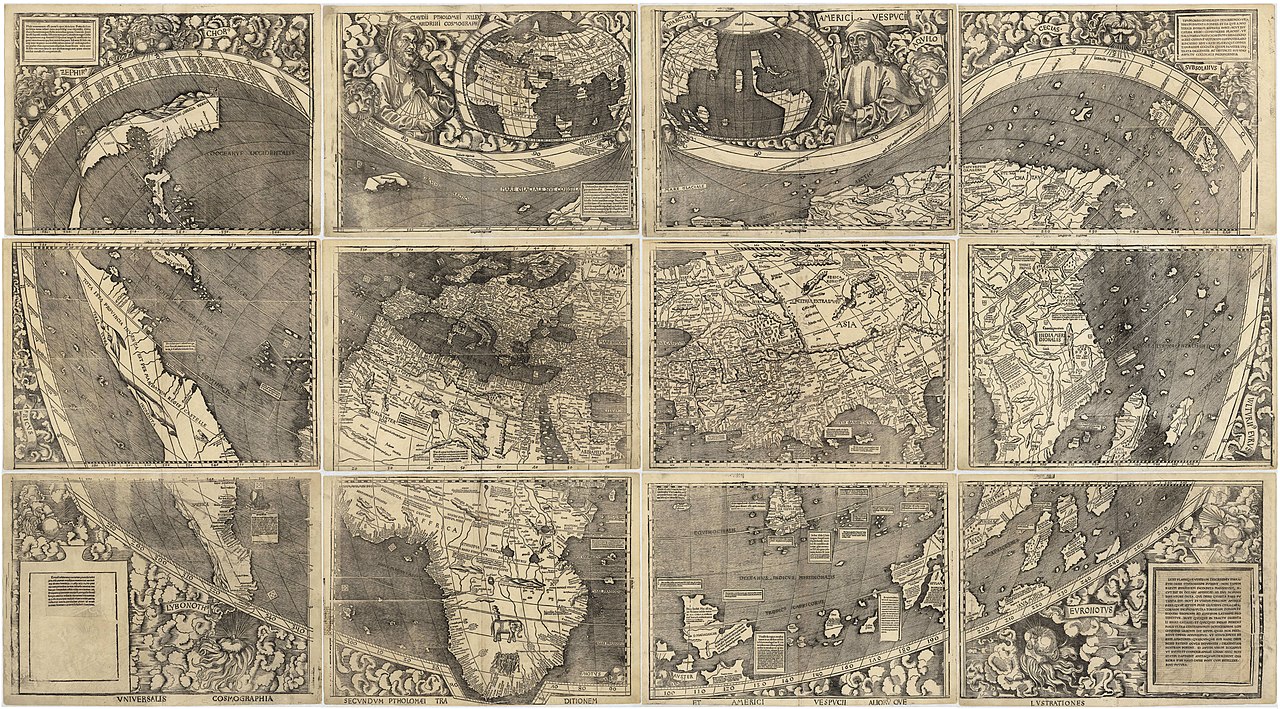
Editor’s Note: Jonathan Cohen is a poet, translator, and scholar with expertise in inter-American literature. Portions of this essay originally appeared in The American Voice.
America, we learn as schoolchildren, was named in honor of Amerigo Vespucci for his discovery of the mainland of the New World. We tend not to question this lesson about the naming of America. By the time we are adults, it lingers vaguely in most of us, along with images of wave-tossed caravels and forests peopled with naked cannibals. Not surprisingly, the notion that America was named for Vespucci has long been universally accepted, so much so that a lineal descendant, America Vespucci, went to New Orleans in 1839 and asked for a land grant "in recognition of her name and parentage." Since the late 19th century, however, conflicting ideas about the truth of the derivation have been set forth, and have had profound cultural and political implications. To question the origin of America's name is to question the truth of not only our history lessons, but our very identity as Americans.
Traditional history lessons about the discovery of America also raise questions about the meaning of discovery itself. It is now universally recognized that neither Vespucci nor Columbus "discovered" America. They were of course preceded by the pre-historic Asian forebears of Native Americans, who migrated across some ice-bridge in the Bering Straits or over the stepping stones of the Aleutian Islands. A black African discovery of America, it has been argued, took place around 3000 years ago, and influenced the development of Mayan, Aztec, and Inca civilizations.
The records of Scandinavian expeditions to America are found in sagas — their historic cores encrusted with additions made by every storyteller who had ever repeated them. The Icelandic Saga of Eric the Red, the settler of Greenland, which tells how Eric's son Leif came to Vinland, was first written down in the second half of the 13th century, 250 years after Leif found a western land full of "wheatfields and vines"; from this history emerged a fanciful theory in 1930 that the origin of "America" is Scandinavian: Amt meaning "district," and Eric was added to that to form Amteric, or the Land of (Leif) Eric.
Other Norsemen went out to the land that Leif had discovered; in fact, contemporary advocates of the Norse connection claim that, from around the beginning of the 11th century, North Atlantic sailors called this place Ommerike (oh-MEH-ric-eh), an Old Norse word meaning "farthest outland." (This theory is currently being promoted
Other discoveries of America have been credited to the Irish, who had sailed to a land they called Iargalon, the territory beyond the sunset, and to the Phoenicians, who purportedly came here before the Norse. The 1497 voyage by John Cabot to the Labrador coast of Newfoundland constitutes yet another discovery of the American mainland, which led to an early 20th-century account of the naming of America, recently revived, that claims the New World was named after an Englishman (Welshman, actually) called Richard Amerike.
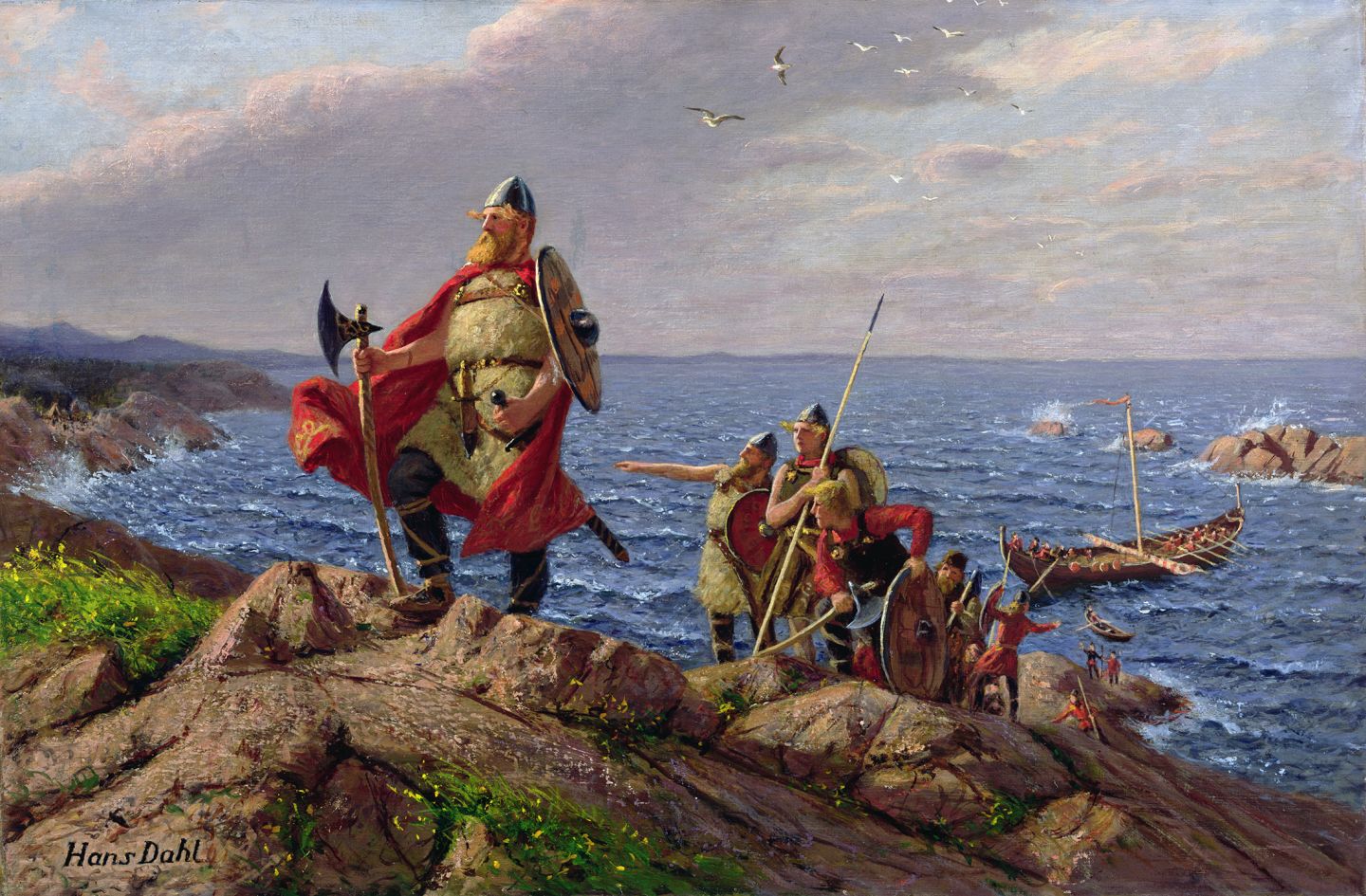
And yet, despite the issue of who discovered America, we are still confronted with the awesome fact that it was the voyages of Columbus, and not earlier ones, that changed the course of world history. Indeed, as Tzvetan Todorov, author of The Conquest of America (1984), has argued, "The conquest of America … heralds and establishes our present identity; even if every date that permits us to separate any two periods is arbitrary, none is more suitable, in order to mark the beginning of the modern era, than the year 1492, the year Columbus crosses the Atlantic Ocean." Columbus clearly made a monumental discovery in showing Europe how to sail across the Atlantic; Vespucci's great contribution was to tell Europe that the land Columbus had found was not Asia but a New World (and that a western route to Asia involved yet another ocean beyond it). The naming of America, then, becomes essential to a full understanding of our history and cultural values — ourselves — especially when considered in terms of the range of theories about the origin of the name.
The Maya Connection
The most explosive, haunting, almost-credible etymology — the so-called Amerrique theory, which was first advanced in 1875 — reappeared in the late 1970s in an essay by Guyanan novelist Jan Carew, titled "The Caribbean Writer and Exile." Carew focuses on the identity struggle of Caribbeans who are "subject to successive waves of cultural alienation from birth — a process that has its origins embedded in a mosaic of cultural fragments — Amerindian, African, European, Asian." He adds that "the European fragment is brought into sharper focus than the others, but it remains a fragment." It is in his discussion of this European fragment that he
Carew moves from the "fictions" of Columbus to those of Vespucci with these striking words: "Alberigo Vespucci, and I deliberately use his authentic Christian name, a Florentine dilettante and rascal, corrected Columbus's error (thinking he had found the Orient) … Vespucci, having sailed to the American mainland, declared that what Columbus had indeed stumbled on was a New World." Carew then alludes to Vespucci's famous letters about his voyages (more later about these controversial letters), which caused a great stir throughout Europe when they were published in the early 1500s. In them, Vespucci "invented a colonizer's America, and the reality that is ours never recovered from this literary assault and the distortions he inflicted upon it" because "the fiction of a 'virgin land' inhabited by savages, at once a racist one and a contradiction, remains with us to this day." But Carew, in developing his own fiction, which derives largely from a fanciful 19th-century treatise, goes on to say: "Amerigo (sic) was undoubtedly a Florentine dilettante … and an extraordinarily clever one. Why would he otherwise have changed his Christian name after his voyages to the Americas?"
Carew is resurrecting the ideas of Jules Marcou, a prominent French geologist who, while studying North America, argued, as did other 19th-century writers, that the name America was brought back to Europe from the New World and that Vespucci had changed his name to reflect the name of his discovery. Specifically, Marcou introduced the name of an Indian tribe and of a district in Nicaragua called Amerrique, and asserted that this district — rich in gold — had been visited by both Columbus and Vespucci, who then made this name known in Europe. For both explorers, the words Amerrique and gold became synonymous. Subsequently, according to Marcou's account, Vespucci changed his Christian name from Alberico to Amerigo. Carew cites Marcou to back his claim that "in the archives of Toledo, a letter from Vespucci to the Cardinal dated December 9, 1508, is signed Amerrigo with the double 'r,' as in the Indian Amerrique … and between 1508 and 1512, the year in which Vespucci died, at least two other signatures with the Christian name Amerrigo were recorded."
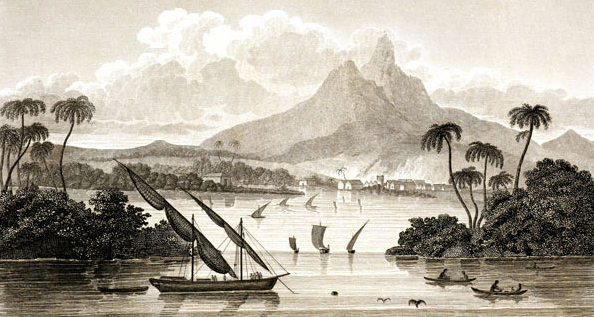
Like Marcou, Carew wants us to believe that America was not named after Vespucci, but vice versa; that Vespucci had, so to speak, re-named himself after his discovery, gilding his given name by modifying it to reflect the significance of his discovery.
And what of this elemental meaning? To define it, Carew echoes Marcou, who quotes from his correspondence with Augustus Le Plongeon. An imaginative anthropologist studying Mayan culture in Yucatan, Le Plongeon had written to the French scholar: "The name AMERICA or AMERRIQUE in the Mayan language means a country of perpetually strong wind, or the Land of the Wind, and sometimes the suffix '-ique' and '-ika' can mean not only wind or air, but also a spirit that breathes, life itself."
All this leads Carew to conclude that "we must, therefore, reclaim the name of our America and give it once again its primordial meaning, land of the wind, the fountainhead of life and movement." His assertions concerning the name and its origin demand closer scrutiny, for, in his passion to dispel myths, he has created new ones.
Vespucci's Good Name
First of all, Vespucci's name must be cleared. He has been wrongfully portrayed as a crafty opportunist ever since the mid-16th century, when Bartholomew de Las Casas accused him of being a liar and a thief who stole the glory that belonged to Columbus. "The new continent," insisted Las Casas, "should have been called Columba and not as it is unjustly called, America." In his epoch-making History of the Indies, Las Casas demeans Vespucci and his achievement, slandering his name by describing what he (a friend of Columbus and his family) considered "the long, premeditated plan of Vespucci to have the world acknowledge him as the discoverer of the largest part of the Indies."
Vespucci's unfounded bad reputation persisted throughout the 19th century. One of the climaxes of vilification was attained by Ralph Waldo Emerson, who comments in English Traits: "Strange … that broad America must wear the name of a thief. Amerigo Vespucci, the pickle-dealer at Seville, who went out, in 1499, a subaltern with Hojeda, and whose highest naval rank was boat-swain's mate in an expedition that never sailed, managed in this lying world to supplant Columbus and baptize half the Earth with his own dishonest name." Vespucci was not the man described by Las Casas and Emerson, nor was he simply "an unimportant Florentine merchant," as he is described in the 1992 edition of Compton's Encyclopedia.
Vespucci was born in 1454 in Florence, where he was baptized, according to the official record, "Amerigho" — not, as Carew asserts, Alberigo. The use of the form Amerigho for Amerigo is an instance of the orthographic anarchy that existed in the spelling of proper names. The name Amerigo derives from an old Gothic name, Amalrich. In all its forms found in Europe (Greek "Aimulos," Latin "Aemelius"), the underlying meaning was that of work. Amalrich, which literally meant "work-ruler," or designator of tasks, might be freely translated as master workman. Old German forms of the name were Amalrich, Almerich, Emmerich; the Spanish form was Almerigo; in England, it was Almerick, or Merica in old families in Yorkshire. It appeared in feminine forms as Amelia and Emily; its masculine forms were Amery, Emeric, and Emery. But, as Charlotte Mary Yonge wrote in her History of Christian Names, it was "the Italian form, Amerigo, which was destined to become the most-noted use … which should hold fast that most fortuitous title, whence thousands of miles, and millions of men, bear the appellation of the forgotten forefather of a tribe of the Goths — Amalrich, the work-ruler; a curiously appropriate title for the new world of labor and of progress." Some Hungarian scholars believe that Vespucci was named after Saint Emeric (c. 1000–1031), son of the first king of Hungary. He was known in Latin as Sanctus Americus, after being canonized for his pious life and purity. As a further reflection of national pride, a theory native to Hungary holds that the European explorers of the New World, or their priests, named it after this popular saint, in the old tradition of bestowing place names in honor of saints. However, no proof of this etymology exists. Concerning Vespucci, he actually was named after his grandfather, as indicated in the baptismal register of his church in Florence: "Amerigho et Matteo di ser Nastagio (his father) di ser Amerigho (his grandfather) Vespucci." His grandfather's burial stone there is inscribed with the elder's name as Amerigo Vespuccio. As was the custom of the Florentine nobility, Vespucci received an education that featured special instruction in the sciences connected with navigation — natural philosophy, astronomy, and cosmography — in which he excelled. Around 1490, he was sent to Spain by his employers, the famous Italian family of Medici, to join their business in fitting out ships. Vespucci was probably in Seville in 1492 when Columbus was preparing for his first historic voyage, as well as in 1493, when Columbus returned. Soon after, Vespucci was involved in fitting out the fleet for Columbus's second
The period during which Vespucci made his own voyages falls between 1497 and 1504. At the beginning of 1505, he was summoned to the court of Spain for a private consultation, and, as a man of experience, was engaged to work for the famous Casa de Contratacion de las Indias (Commercial House for the West Indies), which had been founded two years earlier, in Seville. In 1508, the house appointed him "piloto mayor" (pilot major, or chief navigator), a post of great responsibility, which included the examination of the pilots' and ships' masters' licenses for voyages. He also had to prepare the official map of newly discovered lands and of the routes to them (for the royal survey), interpreting and coordinating all data that the captains were obliged to furnish. Vespucci, who obtained Spanish citizenship, held this position until his death in Seville in 1512. In the face of the spurious charges that he was an ignorant usurper of the merits of others, the fact that Spain entrusted him, a foreigner, with the office of pilot major certainly bolsters his defense. During the first half of the 20th century, scholars discovered further evidence that clears away the cloud of misunderstanding and ignorance by which Vespucci has long been obscured. Frederick J. Pohl's biography, Amerigo Vespucci, Pilot Major (1966), and Germán Arciniegas's Amerigo and the New World (1955) are among the best efforts that dispel the shadows to which he was relegated by those who maligned his fame. Nonetheless, both biographers disagree about the authenticity of his two published letters, key documents in a dramatic controversy: Arciniegas accepts them as genuine, whereas Pohl rejects them as forgeries. Their arguments muster convincing evidence, suggesting an irreconcilable debate. But the question concerning the authenticity of these historic letters remains fundamental to the evaluation of Vespucci's achievement. Two series of documents pertaining to his voyages are extant. The first or traditional series consists of the widely published letters, dated 1504, purportedly written by him. Addressed to his patron, Lorenzo di Pierfrancesco de' Medici, who had sent Vespucci to Spain to do business for him there, Mundus Novus (New World) — the title alone revolutionizing the European conception of the cosmos — was translated from the Italian into Latin, and originally printed in Vienna; the other letter, addressed to the gonfaloniere (chief magistrate) of Florence, Piero Soderini, was a more elaborate work. The second series consists of three private letters addressed to the Medici. In the first series of documents, four voyages by Vespucci are described; in the second, only two. Until the 1930s, the documents of the first series were considered from the point of view of the
The voyage completed by Vespucci between May 1499 and June 1500 as navigator of an expedition of four ships sent from Spain under the command of Alonso de Hojeda is certainly authentic. This is the second expedition of the traditional series. Since Vespucci took part as navigator, he certainly cannot have been inexperienced; however, it seems unlikely that he had made a previous voyage, though this matter remains unresolved. In the voyage of 1499–1500, Vespucci would seem to have left Hojeda after reaching the coast of what is now Guyana (Carew's homeland). Turning south, he is believed to have discovered the mouth of the Amazon River and explored the coast of present-day Brazil. On the way back, he reached Trinidad, sighting en route the mouth of the Orinoco River. He then made for Haiti. Vespucci thought he had sailed along the coast of the extreme easterly peninsula of Asia, where Ptolemy, the 2nd-century Greek geographer, believed the market of Cattigara to be, so he looked for the tip of this peninsula, calling it Cape Cattigara. He assumed that the ships, once past this point, emerged into the seas of southern Asia. As soon as he was back in Spain, he equipped a fresh expedition, with the aim of reaching Asia. But the Spanish government did not welcome his proposals, and at the end of 1500, Vespucci went into the service of Portugal. Under Portuguese auspices, he completed a second expedition, which set sail from Lisbon on May 31, 1501. After a halt at the Cape Verde Islands, the expedition traveled southwestward, reached the coast of Brazil, and certainly sailed as far south as the Río de la Plata, which Vespucci was the first European to discover. In all likelihood, the ships took a quick run still farther south, along the coast of Patagonia to the Golfo de
His ships returned by an unknown route, anchoring at Lisbon on July 12, 1502. This voyage is fundamentally important in the history of geography because Vespucci himself became convinced that the lands he had explored were not part of Asia, but a New World. Unlike Columbus, who, to his death, clung to the idea that he had found the shores of Asia, Vespucci defined what he had indeed found — and for this, he has been rightfully honored. Naming the New World Vespucci not only explored unknown regions; he invented a system of computing exact longitude, and he arrived at a figure for computing the Earth's equational circumference only fifty miles short of the correct measurement. It was, however, not his many solid accomplishments, but an apparent error made by a group of scholars living in St. Dié, near Strasbourg, France, in the mountains of Lorraine, then part of Germany, that led America to be named (ostensibly) after him, and this is largely why his reputation has suffered. His published letters had fallen into the hands of some German scholars, among whom was the young cartographer Martin Waldseemüller. Inspired to publish a new geography that would embrace the New World, the group collectively authored a revision of Ptolemy, which included a Latin translation of Vespucci's purported letter to Soderini, as well as a new map of the world drawn by Waldseemüller. In their resulting Cosmographiae Introductio, printed on April 25, 1507, appear these famous words (as translated from the original Latin) written most likely by one of the two poet-scholars involved in the project: "But now these parts — Europe, Asia, and Africa, the three continents of the Ptolemaic geography — have been extensively explored, and a fourth part has been discovered by Americus Vespuccius (a Latin form of Vespucci's name), as will be seen in the appendix: I do not see what right any one would have to object to calling this part after Americus, who discovered it and who is a man of intelligence, and so to name it Amerige, that is, the Land of Americus, or America: since both Europa and Asia got their names from women." The new geography included in its appendix Waldseemüller's large, stunning map of the world, on which the New World is boldly labeled AMERICA — in the middle of present-day Brazil. This map is the first known one, printed or in a manuscript, to use the name America, and also the first to clearly depict a separate Western hemisphere, with the Pacific as a separate ocean. The entire New World portion of the map roughly represents South America, and when later mapmakers added North America, they retained the original name. In 1538, the great Flemish geographer Gerard Mercator gave
Waldseemüller's 1507 map, lost to scholars until 1901, when it was found in a German castle, is now reckoned to be the first to show the name, and the earliest record of its use. Moreover, the discoverer of the map went so far as to dub it the "Baptismal Certificate of the New World." Historians today agree that Vespucci, who was completely unaware of the project in Lorraine, had nothing to do with the so-called "baptism." He clearly never tried to have the New World named after him or to belittle his friend Columbus. Nonetheless, the name America spread throughout Europe and quickly established itself through sheer force of usage. The baptismal passage in the Cosmographiae Introductio has commonly been read as an argument in which the author said that he was naming the newly discovered continent in honor of Vespucci, and saw no reason for objections. But, as etymologist Joy Rea has suggested, it could also be read as explanation, in which he indicates that he has heard that the New World was called America, and the only explanation lay in Vespucci's name. In ignoring the possible intention of these words as explanation, most scholars have ignored the simple fact that place names usually originate informally in the spoken word, and first circulate that way, not in the printed word. Moreover, to read the passage in the Cosmographiae Introductio as explanation lends credence to the theory, argued by Carew, Marcou, and others, that the early European explorers called the new continent Amerrique or, perhaps another name with a similar pronunciation. Even though the Latinization of Americus fits a pattern, why did the cosmographers not employ Albericus (hence, the assumption that "Alberigo" was Vespucci's authentic Christian name), the Latinization that had already been used for Amerigo's name as the author of Mundus Novus? Their substitution of Americus for the well-known Latinization Albericus might mean that they wanted a Latinization that would fit and explain the name America which they had already heard applied to the New World. Why did they ignore the common law in the naming of new lands: the use of the last names of explorers and the first names of royalty? Their ignoring it, Rea claims, further supports the idea that they were trying to force an explanation and that the only one they could think of was a Latinization of Vespucci's first name. Another Amerindian Root Did America get its name through oral tradition when those who had sailed with Columbus or Vespucci circulated stories that gold was to be found in the Amerrique Mountains of Nicaragua? According to Ricardo Palma's Tradiciones Peruanas (Peruvian Traditions, 1949), the ending of the word America indicates this origin: "The ending ic (ica, ique, ico) is found frequently in the names of places, in the languages and native dialects of Central America and even of the Antilles. It seems to mean
The coast at the foot of the Amerrique Mountains that faces the Caribbean Sea is called the Mosquito Coast, named for the Miskito Indians, who live there still. These people are Caribs. It is almost certain that Columbus first heard the name of the mountains pronounced by a Carib. Amerrique, therefore, must derive from a Carib word, possibly one of the Carib-culture words — not a word in the Mayan language, which was not spoken in Nicaragua, though it almost resembles in sound the Quiche Mayan iq' amaq'el, meaning "perpetual wind." Further dispelling the idea of a Maya connection to America, Robert M. Laughlin, an eminent anthropologist with expertise in Mayan culture, and the former curator of Mesoamerican Ethnology at the Smithsonian Institution, points out that "r" rarely appears in the alphabets of Mayan languages. The Caribs, traveling far from their Carib or Cariay coast, could see the Amerriques in the distance, and these mountains could have signified the mainland to them. The Indians in the Caribbean did have a word for the mainland, given in the Lexicografía Antillana (Antillean Dictionary, 1931) as babeque and defined as the name that Columbus understood the Indians to say when they were pointing to a land beyond Haiti and Cuba. Las Casas believed for a while that this place must be Jamaica, but later decided it was the name for the mainland. Other historians have considered it the name the Caribs used for the mainland. Babeque, different as it sounds from Amerrique, could possibly be a variant of Amerrique. Very different spellings for the same Carib word reflect variants that sound little like each other; thus, the variants of the name Carib are Canibe, Galibi, Caniba, Canibal, and Caliban. The English Connection Equally as amazing as the Amerrique theory, the little-known theory that "America" derives from the name of a Bristol-based Welshman, Richard Ameryk, emerged early in the 20th century. It constitutes an incredible Anglicization of the New World — and would, for obvious reasons, infuriate Carew. The theory was developed by Alfred E. Hudd, a member of the Clifton Antiquarian Club, which in 1910 published
Hudd opens with a reference to Bristol's 1897 celebration of the 400th anniversary of the discovery of North America by John Cabot (Giovanni Caboto), the Italian navigator and explorer who had sailed for England, laying the groundwork for the later British claim to Canada. For his achievement, Cabot received a handsome pension conferred upon him by the King, from the hands of the Collectors of Customs of the Port of Bristol. One of these officials, the senior of the two, who was probably the person who handed over the money to the explorer, was named Richard Ameryk (also written as Ap Meryke in Welsh on one deed, and elsewhere as Amerycke) who seems to have been a leading citizen of Bristol at the time. Hudd claims that the name given to the newly found land by the discoverer was "Amerika," in honor of the official from whom he received his pension. On his return to England, the flamboyant Cabot, who dressed in silk, was celebrated as "the Great Admiral." He had a reputation for extravagance and supposedly gave one of the islands he had explored to a friend, another to his barber, and had also promised some Italian friars that they could be bishops. Hudd reasons that if Cabot were so free with his gifts to his poorer friends, it is easy to understand his wish to show gratitude to the king's official, and that he may well have done so by conferring his name on "the new Isle" which, it was thought, lay off the coast of China. Cabot never realized that he had found a continent. To back his claim that the name America was known in Bristol in the years just before 1500, and well before Waldseemüller's map, Hudd presents the often-quoted words of a lost manuscript, one of the "Calendars" in which local events were recorded: "This year (1497), on St. John the Baptist's day (June 24th), the land of America was found by the merchants of Bristowe, in a ship of Bristowe called the 'Mathew,' which departed from the port Bristowe the 2nd of May and came home again the 6th August following." If Hudd's suggestion is correct, the original manuscript documents the fact that the newly discovered land was already called America in Bristol before that name became known in Europe. "Amerika," Hudd says, "seems much more like the name of the Bristol Customs official, than that of the Italian (Amerigo) … and having been invented in Bristol, by Cabot, and having been the only name for 'the new island' for
More recently, two Englishmen have championed the Amerike theory. Peter MacDonald, author of Cabot and the Naming of America: A Revelation (1997), asserts that Cabot named his discovery after Amerike because "Richard Amerike sought reward for his patronage by asking that any new-found lands should be named after him." MacDonald doesn't stop there. He also maintains that, "since the flag of the United States of America is based on the design of Amerike's coat of arms, it is more than probable that its origins lie with Amerike and not with George Washington, whose family also bore arms of the Stars and Stripes." Like MacDonald's book, Rodney Broome's Terra Incognita: The True Story of How America Got Its Name (2001) is a good read, but ultimately lacks hard evidence to support the author’s claim. He presents a compelling inference, at best. A longtime U.S. resident, Broome is originally from Bristol. He summarizes his argument this way in the Bristol Times: "Bristol merchants bought salt cod in Iceland until the King of Denmark stopped the trade in 1475. In 1479, four Bristol merchants received a royal charter to find another source of fish and trade. Not until 1960 did someone find bills of trading records indicating that Richard Amerike was involved in this business. Records show that, in 1481, Amerike shipped a load of salt (for salting fish) to these men in Newfoundland, and I believe the Bristol sailors named the area after the Bristol merchant they worked for." Finally, the current (fifth) edition of Webster's New World College Dictionary admits the mystery that surrounds the origin of the name America, saying it derives from "Americus Vespucius … but Amerrique, the name of a mountain range in Nicaragua, was used by early explorers for the newly discovered lands." No definitive conclusions can be reached. Too many claims are, due to the lack of compelling evidence, based on speculation. Theories about the true origin of the name are ultimately historical fictions whose authors have been inclined
Yet, behind these fictions lie compelling views of the New World. Taken together, they form a multicultural vision of its distinctive character. To hear Americus in the name; to hear the Amerrique Mountains and their perpetual wind; to hear the African in the Mayan iq' amaq'el; to hear the Scandinavian Ommerike, as well as Amteric, and the Algonquin Em-erika; to hear Saint Emeric of Hungary; to hear Amalrich, the Gothic lord of the work ethic; to hear Armorica, the ancient Gaulish name meaning "place by the sea;" and to hear the English official, Amerike — to hear such echoes in the name of our hemisphere is to hear ourselves. 
